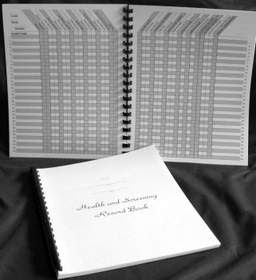Importance of Record keeping in commercial fish production
The only source of information
fish farmer can rely in assessing fish’s status and performance, it should be
noted that fish are always under the water though farmer can observe his or her
fish during feeding but only a small part of fish condition can be obtained
during fish feeding.
Unfortunately, record keeping has became difficult
issue for most of our fish farmers. The farmer can be very happy that his or
her fish farm yields good profit but when observe closely, there are a lot of issues
left behind that directly or indirectly have impact on fish, production cost
and return of fish farm.
As long as one indulge in commercial fish production,
record keeping is an unvoided activity and it is a continuous process in fish
farming because circumstances on the farm change continuously, on a daily basis.
Record
keeping help fish farmers in
v Evaluating
performance and making future plans.
v Farm records can
demonstrate if changes in management are improving or harming the fish’s
performance and what the farms’ economic returns actually are.
v Farmer should note
that farm records:
v They should be
easy to complete
v Easy to update
v Enable quick
decision making and facilitate quick action
v Filling in farm
records should not be time consuming.
v Information
should not have to be re-written several times, in several
forms or transferred more than once (Isyagi et al., n.d.).
The recommended production
records for fish farms are the pond
management and feed record sheets
without forget records of accounts for all expenditures and sales.
Note
The feed sheet is filled on a
daily basis because fish are fed every day.
Below I have provided a samples
of pond management, fish sampling and feed record sheets.
Note
Production records sheets are not
fixed, farmer can design based on his or her visions and depend on the fish
farm productions type.
POND RECORD
FORM
District Owner’s Name
Division If Group, Number members
Location
No. Men………………………………
Sub location
No.women…………………………
Village Pond number ____ of _____ total owned
Date constructed………………………………….
Cost of construction……………………………
Pond surface area ………………………………
Stocking Records
DATE
|
SPECIES
|
NUMBER
|
SIZE
|
TOTAL WEIGHT
|
SOURCE (SUPPLIER)
|
SOURCE (SUPPLIER)……………………………………. HARVEST
RECORDS
Pond
Management Records: Inputs (Feeds and /or Fertilizers)
DATE
|
TYPE OF INPUTS
|
AMOUNT
|
FRECUENCY
|
COST
|
DATE FOR DEATH
|
NUMBER
|
SIZE
|
NUMBER DEAD
|
RECORD
KEEPING CATCAT
FEED
SHEET: Week of ………………………………..
Pond
|
Type feed
|
Amount
|
J3
|
J4
|
J5
|
Alh
|
Iju
|
Jmos
|
J2
|
Tot
kgs
|
Obser
|
|||||||
Note
v Feeding
response must be fill in grey box
v Feeding
Response: E -
excellent G - good F - fair P – poor
·
E – Excellent – Fish are very active and come to
feed immediately. The feed is all consumed by the fish within 15 to 20 minutes
of feeding in grow-out.
·
Ponds.
Ideally a bag of feed in a grow-out pond should be consumed within 5
minutes.
·
G – Good – Fish are less active and come to
feed over a longer duration. Feed gets consumed over a longer duration.
·
F – Fair – Fish are sluggish but do consume
about three quarters of the feed. However, they do so in over more than 30
minutes.
·
P – Poor – When feed is applied, fish do not
come to feed. More than three quarters of the feed administered is left over.
For more information you can contact me through my
Email address:michaelkellya25@gmail.com or you
can leave your comment in comment box.
Mobile: 255 752 1218 67

1 comment:
This is useful. Thanks for sharing
Post a Comment